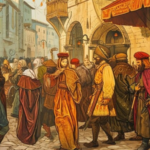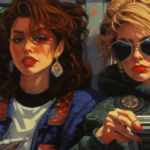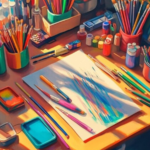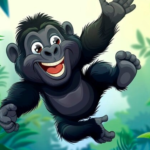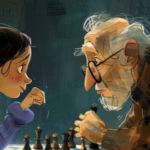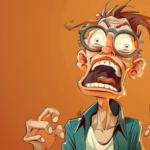Have you ever faced a puzzle that made you pause, scratch your head, and then have that “aha” moment when the solution finally clicked? Those are the joys of Truth Riddles. Unlike ordinary riddles, truth riddles are designed to challenge not just your memory or logic, but your perception and critical thinking.
They are mental workouts disguised as fun brain teasers. While a simple riddle might just require a quick guess, a truth riddle pushes you to think differently, question assumptions, and uncover hidden truths. People of all ages are drawn to truth riddles because they offer a combination of entertainment, challenge, and mental stimulation.
Truth riddles have a timeless appeal. Whether you are a child learning how to think critically, a student sharpening logic skills, or an adult wanting to keep your mind sharp, these riddles are universal in their benefits and fun.
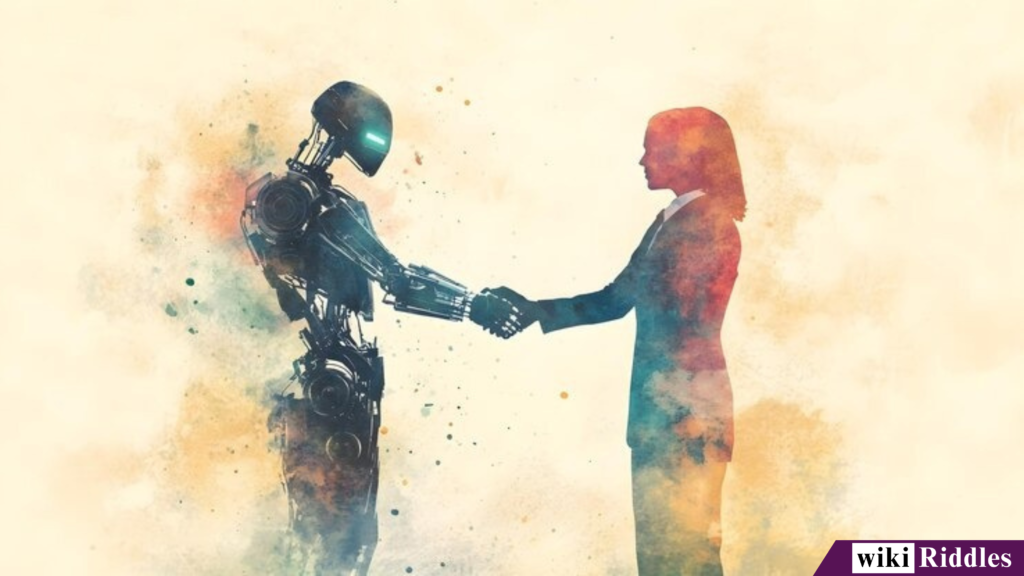
250+ “Truth Riddles” with Answers
Paradoxes
- Riddle: What can travel around the world while staying in a corner?
Answer: A stamp. - Riddle: The more you take away from me, the bigger I get. What am I?
Answer: A hole. - Riddle: Can an omnipotent being create a rock so heavy that even they cannot lift it? What is the paradox?
Answer: It is a logical paradox; the question itself creates a contradiction. - Riddle: I speak without a mouth and hear without ears. I have no body, but I come alive with wind. What am I?
Answer: An echo. - Riddle: I am always coming, but never arrive. What am I?
Answer: Tomorrow. - Riddle: If a tree falls in a forest and no one is around, does it make a sound?
Answer: The paradox challenges perception and observation; there is no definitive answer. - Riddle: The more you share me, the less you have. What am I?
Answer: A secret. - Riddle: What has cities, but no houses; forests, but no trees; and rivers, but no water?
Answer: A map. - Riddle: I am taken from a mine, and shut up in a wooden case, from which I am never released, and yet I am used by almost every person. What am I?
Answer: Pencil lead (graphite). - Riddle: What can fill a room but takes up no space?
Answer: Light.
Lies vs Truth
- Riddle: Two doors stand before you. One leads to freedom, the other to danger. One guard always lies, the other always tells the truth. You can ask one question. What do you ask?
Answer: “If I asked the other guard which door leads to freedom, what would they say?” Then choose the opposite door. - Riddle: I speak falsely at night and truly by day. What am I?
Answer: A shadow. - Riddle: A man says, “I always lie on Mondays, Tuesdays, and Wednesdays.” What day is he telling the truth?
Answer: Thursday. - Riddle: You meet three people. One always lies, one always tells the truth, one alternates. One says, “I am the truth-teller.” Who is who?
Answer: Use logical deduction based on who contradicts themselves. - Riddle: I am something people want to hear, but if you tell the truth, you scare them. What am I?
Answer: Bad news. - Riddle: A father and son have an accident. The father dies, the son is rushed to surgery. The surgeon says, “I cannot operate, he is my son.” How is this possible?
Answer: The surgeon is the boy’s mother. - Riddle: What is always truthful even when it seems to deceive?
Answer: A mirror. - Riddle: I am caught in every lie but never speak. What am I?
Answer: Evidence. - Riddle: Two people see a crime. One lies, one tells the truth. How do you know who?
Answer: Compare their stories for consistency and facts that can be verified. - Riddle: I am invisible yet reveal the truth. I am everywhere, yet nobody can touch me. What am I?
Answer: Time.
Detective Mysteries
- Riddle: A man was found dead in a locked room with a puddle of water beside him. What happened?
Answer: He stood on a block of ice that melted. - Riddle: Someone is found dead in the library. There is a note with the number 729. What does it mean?
Answer: It is a code or clue pointing to something like a page or location. - Riddle: A man is shot in the head but there is no blood. How?
Answer: He was shot with a water gun or a blank-firing gun in a reenactment. - Riddle: A crime happened at midnight, but the clock shows 3 PM. How is this possible?
Answer: The clock is broken or stopped. - Riddle: A man is found hanged but the floor is clean. How?
Answer: He used ice to stand on, which melted after the hanging. - Riddle: There are footprints in the snow, but they suddenly stop. What happened?
Answer: The person took a hidden path or used a bridge. - Riddle: A burglar leaves a room, but no doors or windows were opened. How?
Answer: The door was unlocked or there was a secret passage. - Riddle: A man claims he was in two places at once. How can this be true?
Answer: He used a phone or video call to appear elsewhere. - Riddle: Someone finds a broken watch. How can it still tell the correct time twice a day?
Answer: Because it is stopped at the correct hour and minute. - Riddle: A detective finds a poisoned drink untouched. How did the victim die?
Answer: The poison was on something else like the glass or straw.
Moral Dilemmas
- Riddle: You can save five people by pulling a lever, but one will die. Do you pull it?
Answer: The riddle is about ethical choice; there is no single answer. - Riddle: You see someone stealing food to survive. Do you report them?
Answer: It explores morality versus law; answer depends on perspective. - Riddle: If telling a lie can save a life, is it still wrong?
Answer: The riddle challenges absolute truth versus consequence. - Riddle: You find a wallet with money and ID. Do you keep it or return it?
Answer: Returning it is ethically correct; keeping it raises moral conflict. - Riddle: You must choose between saving a friend or a stranger from danger. Who do you choose?
Answer: The riddle tests loyalty versus impartiality. - Riddle: A doctor has one dose of medicine and two patients. Who gets it?
Answer: Decision explores ethical prioritization. - Riddle: You can cheat on a test and pass, or stay honest and fail. What do you do?
Answer: Explores integrity versus personal gain. - Riddle: Lying could prevent a war. Do you lie?
Answer: Moral consequence depends on perspective. - Riddle: You see someone being bullied. Do you intervene?
Answer: Examines courage versus personal risk. - Riddle: You can donate money anonymously or publicly. Which is more ethical?
Answer: Both can be ethical; intention matters.
Hidden Truths
- Riddle: I am always in front of you but cannot be seen. What am I?
Answer: The future. - Riddle: I speak without a mouth and hear without ears. What am I?
Answer: An echo. - Riddle: The more you take from me, the larger I become. What am I?
Answer: A hole. - Riddle: I have keys but no locks. What am I?
Answer: A piano. - Riddle: I am not alive, but I grow. What am I?
Answer: Fire. - Riddle: I have branches, but no fruit, trunk, or leaves. What am I?
Answer: A bank. - Riddle: The more of me you take, the more you leave behind. What am I?
Answer: Footsteps. - Riddle: I can be cracked, made, told, and played. What am I?
Answer: A joke. - Riddle: I have cities but no houses. What am I?
Answer: A map. - Riddle: What has a head, a tail, but no body?
Answer: A coin.
Fact or Fiction
- Riddle: What is heavier, a kilogram of feathers or a kilogram of stone?
Answer: Both weigh the same. - Riddle: Can you fold a piece of paper more than seven times?
Answer: Usually no, due to exponential thickness. - Riddle: Do bats see in total darkness?
Answer: No, they use echolocation. - Riddle: The Great Wall of China is visible from space. True or false?
Answer: False; it is barely visible without aid. - Riddle: Lightning never strikes the same place twice. True or false?
Answer: False. - Riddle: Humans only use 10 percent of their brains. True or false?
Answer: False. - Riddle: Goldfish have a three-second memory. True or false?
Answer: False. - Riddle: Sugar makes children hyperactive. True or false?
Answer: False. - Riddle: Napoleon was extremely short. True or false?
Answer: False; he was average height. - Riddle: You can see the Great Pyramid from the moon. True or false?
Answer: False.
Optical Truths
- Riddle: What looks like a triangle but has no corners?
Answer: A circle reflected in a triangle-shaped mirror. - Riddle: I appear once in a minute, twice in a moment, but never in a thousand years. What am I?
Answer: The letter M. - Riddle: Which disappears as soon as you say its name?
Answer: Silence. - Riddle: What gets wetter the more it dries?
Answer: A towel. - Riddle: Which has an eye but cannot see?
Answer: A needle. - Riddle: What can you catch but not throw?
Answer: A cold. - Riddle: Forward I am heavy, backward I am not. What am I?
Answer: Ton. - Riddle: What has hands but cannot clap?
Answer: A clock. - Riddle: What has a neck but no head?
Answer: A bottle. - Riddle: I can be cracked, seen through, or spilled. What am I?
Answer: Glass.
Wordplay Truths
- Riddle: I start with T, end with T, and have T inside. What am I?
Answer: A teapot. - Riddle: What has one letter but starts with a mailbox?
Answer: An envelope. - Riddle: What comes once in a year, twice in a week, but never in a day?
Answer: The letter E. - Riddle: What belongs to you but is used more by others?
Answer: Your name. - Riddle: I am taken from a mine and shut in a wooden case. What am I?
Answer: Pencil lead. - Riddle: What kind of room has no doors or windows?
Answer: A mushroom. - Riddle: What word is spelled incorrectly in every dictionary?
Answer: Incorrectly. - Riddle: The more you take me away, the larger I get. What am I?
Answer: A hole. - Riddle: I am not alive, but I grow; I have no mouth, but I speak. What am I?
Answer: Fire. - Riddle: I have words but never speak. What am I?
Answer: A book.
Number Truths
- Riddle: I am a three-digit number. My tens digit is five more than my ones digit, and my hundreds digit is eight less than my tens digit. What number am I?
Answer: 194. - Riddle: What comes next in the sequence 2, 4, 8, 16, …?
Answer: 32. - Riddle: I am an odd number. Take away one letter, and I become even. What number am I?
Answer: Seven. - Riddle: If you multiply me by any other number, the answer will always be the same. What number am I?
Answer: Zero. - Riddle: I am a number less than 10 but more than 5. If you square me, you get a number greater than 25 but less than 36. What number am I?
Answer: 6. - Riddle: Divide 30 by half and add ten. What is the answer?
Answer: 70. - Riddle: I am a two-digit number. My digits add up to 9. I am divisible by 3. What number could I be?
Answer: 18, 27, 36, 45, 54, 63, 72, 81, 90. - Riddle: If two’s company and three’s a crowd, what is four and five?
Answer: Nine. - Riddle: I am a number that is equal to the sum of the squares of my digits. What number am I?
Answer: 9. - Riddle: A father is three times as old as his son. In 15 years, he will be twice as old as his son. How old are they now?
Answer: Father 45, Son 15.
Logic Gates
- Riddle: I am true if and only if both my inputs are true. What am I?
Answer: AND gate. - Riddle: I am true if at least one of my inputs is true. What am I?
Answer: OR gate. - Riddle: I invert my input. If you give me true, I output false. What am I?
Answer: NOT gate. - Riddle: I am true only if my inputs are different. What am I?
Answer: XOR gate. - Riddle: I am always true, regardless of my input. What am I?
Answer: TRUE constant. - Riddle: I am always false, regardless of my input. What am I?
Answer: FALSE constant. - Riddle: I output false only when both inputs are true. What am I?
Answer: NAND gate. - Riddle: I output true only when both inputs are false. What am I?
Answer: NOR gate. - Riddle: I output the opposite of XOR. What am I?
Answer: XNOR gate. - Riddle: I act like an AND gate, but with an inverted output. What am I?
Answer: NAND gate.
Riddle of the Sphinx
- Riddle: What walks on four legs in the morning, two legs at noon, and three legs in the evening?
Answer: A human. - Riddle: I have no mouth but I roar. What am I?
Answer: A river. - Riddle: I fly without wings, I cry without eyes. Wherever I go, darkness flies. What am I?
Answer: The wind. - Riddle: The more of me you take, the more you leave behind. What am I?
Answer: Footsteps. - Riddle: I am not alive, but I grow; I don’t have lungs, but I need air. What am I?
Answer: Fire. - Riddle: I am always in front of you, but can’t be seen. What am I?
Answer: The future. - Riddle: I am light as a feather, yet the strongest man cannot hold me for long. What am I?
Answer: Breath. - Riddle: The more you take from me, the bigger I get. What am I?
Answer: A hole. - Riddle: I can be cracked, told, made, and played. What am I?
Answer: A joke. - Riddle: I have a heart that doesn’t beat. What am I?
Answer: An artichoke.
Who’s Lying?
- Riddle: Three people make statements. Alice says, “I didn’t do it.” Bob says, “Alice did it.” Carol says, “Bob is lying.” Who is lying?
Answer: Bob is lying. - Riddle: One of two guards always lies, the other always tells the truth. One says, “The left door leads to freedom.” Which door should you pick?
Answer: The opposite of the door they indicate. - Riddle: A boy says, “I always lie on Mondays.” Today is Monday, is he lying?
Answer: Yes. - Riddle: Two people see a crime. One says, “I saw Alice take it.” The other says, “No, it was Bob.” One is lying. Who did it?
Answer: The one the liar points to did not do it; the other did. - Riddle: A man says, “All I say is false.” Is he lying?
Answer: It’s a paradox; his statement cannot be true or false consistently. - Riddle: A witness says, “I always tell the truth except on Tuesdays.” Today is Tuesday. Is he lying?
Answer: Yes. - Riddle: Three friends make statements about a stolen watch. Only one is truthful. Who is telling the truth?
Answer: Analyze contradictions to identify the truth-teller. - Riddle: A detective asks, “Who did it?” Two replies contradict. How do you know who is lying?
Answer: Look for statements that cannot both be true. - Riddle: Someone claims, “I never lie.” How do you know if it’s true?
Answer: Observe consistency over time. - Riddle: A politician says, “Everything I say is true.” Can this be trusted?
Answer: Not necessarily; claims require verification.
True Stories
- Riddle: I was the first person to walk on the moon. Who am I?
Answer: Neil Armstrong. - Riddle: I painted the Mona Lisa. Who am I?
Answer: Leonardo da Vinci. - Riddle: I discovered penicillin. Who am I?
Answer: Alexander Fleming. - Riddle: I led India to independence through nonviolence. Who am I?
Answer: Mahatma Gandhi. - Riddle: I flew the first powered airplane. Who am I?
Answer: The Wright brothers. - Riddle: I was the first female prime minister of the UK. Who am I?
Answer: Margaret Thatcher. - Riddle: I painted the ceiling of the Sistine Chapel. Who am I?
Answer: Michelangelo. - Riddle: I discovered America in 1492. Who am I?
Answer: Christopher Columbus. - Riddle: I led the civil rights movement in the USA. Who am I?
Answer: Martin Luther King Jr. - Riddle: I wrote the theory of relativity. Who am I?
Answer: Albert Einstein.
Trust and Betrayal
- Riddle: I promised to keep a secret but told someone else. What did I commit?
Answer: Betrayal. - Riddle: Two friends share a treasure map. One hides the treasure for himself. What is this?
Answer: Betrayal of trust. - Riddle: A king trusted his advisor, but the advisor conspired. What is this an example of?
Answer: Treachery. - Riddle: I lend money to a friend, but he never returns it. What is this?
Answer: Broken trust. - Riddle: Someone promises to help you, but leaves you in danger. What is this?
Answer: Betrayal. - Riddle: A partner in business secretly competes against you. What is this called?
Answer: Betrayal. - Riddle: I gave my word, but I failed to keep it. What is this?
Answer: Breach of trust. - Riddle: A soldier leaks secrets to the enemy. What is this?
Answer: Treason. - Riddle: Someone pretends to be your ally but acts against you. What is this?
Answer: Deception. - Riddle: A friend shares your private thoughts with others. What is this?
Answer: Betrayal.
Cause and Effect
- Riddle: I drop water on fire. What happens?
Answer: The fire is extinguished. - Riddle: I push a domino, and it falls. What happens next?
Answer: Other dominoes fall in sequence. - Riddle: You touch a hot stove. What is the effect?
Answer: You get burned. - Riddle: I plant a seed. What happens after?
Answer: A plant grows. - Riddle: I skip a stone across a pond. What is the result?
Answer: Ripples spread. - Riddle: I press a switch. What occurs?
Answer: The light turns on. - Riddle: I pull a string on a bell. What is the effect?
Answer: The bell rings. - Riddle: I drop a ball from a height. What happens?
Answer: It bounces or hits the ground. - Riddle: I add sugar to tea. What is the result?
Answer: The tea tastes sweet. - Riddle: I break an egg into a pan. What happens?
Answer: It cooks when heated.
Hidden Patterns
- Riddle: What comes next in the sequence: 2, 4, 8, 16, …?
Answer: 32. - Riddle: Fill in the blank: A, C, E, G, …?
Answer: I. - Riddle: What number completes the pattern: 1, 4, 9, 16, …?
Answer: 25. - Riddle: What comes next: 1, 1, 2, 3, 5, 8, …?
Answer: 13. - Riddle: Fill in the blank: 2, 6, 12, 20, …?
Answer: 30. - Riddle: Complete the sequence: Z, X, V, T, …?
Answer: R. - Riddle: What comes next: 3, 9, 27, …?
Answer: 81. - Riddle: Fill in the blank: 5, 10, 20, 40, …?
Answer: 80. - Riddle: Complete the sequence: 1, 2, 4, 8, 16, …?
Answer: 32. - Riddle: Fill in the blank: 10, 20, 40, 80, …?
Answer: 160.
Conditional Truths
- Riddle: If it rains, the ground gets wet. It is raining. What happens?
Answer: The ground gets wet. - Riddle: If the light is red, cars stop. The light is red. What happens?
Answer: Cars stop. - Riddle: If a plant is watered, it grows. I watered the plant. What happens?
Answer: The plant grows. - Riddle: If it is winter, it snows. It is summer. What happens?
Answer: It does not snow. - Riddle: If a person studies, they pass. The person did not study. What happens?
Answer: They may fail. - Riddle: If a match is struck, it ignites. I strike the match. What happens?
Answer: The match lights. - Riddle: If a switch is flipped, the fan turns on. The switch is flipped. What happens?
Answer: The fan turns on. - Riddle: If it is sunny, we go outside. It is cloudy. What happens?
Answer: We may stay inside. - Riddle: If the alarm rings, wake up. The alarm rings. What happens?
Answer: Wake up. - Riddle: If the door is open, the cat can leave. The door is closed. What happens?
Answer: The cat cannot leave.
Perspective Shift
- Riddle: I am always in front of you but cannot be seen. What am I?
Answer: The future. - Riddle: The more you take from me, the larger I get. What am I?
Answer: A hole. - Riddle: I speak without a mouth and hear without ears. What am I?
Answer: An echo. - Riddle: What can be broken but never held?
Answer: A promise. - Riddle: I can be cracked, made, told, and played. What am I?
Answer: A joke. - Riddle: I fly without wings, I cry without eyes. Wherever I go, darkness flies. What am I?
Answer: The wind. - Riddle: I can be long or short, can be grown or bought, and am often told. What am I?
Answer: A story. - Riddle: I am everywhere and nowhere at the same time. What am I?
Answer: Air. - Riddle: The more of me you see, the less you actually notice. What am I?
Answer: Illusion. - Riddle: I am something you can hold without touching. What am I?
Answer: Attention.
Truth in Numbers
- Riddle: What number do you get if you add all the numbers from 1 to 100?
Answer: 5050. - Riddle: I am a three-digit number. My hundreds digit is double my tens digit, and my ones digit is half my tens digit. What number am I?
Answer: 242. - Riddle: If you have two coins that total 30 cents and one is not a nickel, what are the coins?
Answer: A quarter and a nickel. - Riddle: I am a number that is divisible by every number from 1 to 10. What am I?
Answer: 2520. - Riddle: The ages of a father and son add up to 66. The father’s age is the son’s reversed age. What are their ages?
Answer: 60 and 06 or 51 and 15. - Riddle: I am a prime number, but if you reverse my digits, I am still prime. What am I?
Answer: 13. - Riddle: A number is both a square and a cube. What is it?
Answer: 64. - Riddle: I am an even number. If you divide me by two, then add three, you get five. What am I?
Answer: 4. - Riddle: I am a number that is equal to the sum of the cubes of my digits. What am I?
Answer: 153. - Riddle: You multiply me by any number, and the result is always the same. What number am I?
Answer: 0.
Riddle of Time
- Riddle: I am always coming but never arrive. What am I?
Answer: Tomorrow. - Riddle: The more I pass, the shorter I seem. What am I?
Answer: Time. - Riddle: What has a beginning, a middle, and an end, but no time?
Answer: A story. - Riddle: I am faster than a blink, but slower than a thought. What am I?
Answer: A second. - Riddle: I can be measured but not held, I pass without notice, yet change everything. What am I?
Answer: Time. - Riddle: You can see me but not touch me, I leave everyone behind. What am I?
Answer: Shadow of the sun. - Riddle: I have hands but cannot clap, I move in circles but go nowhere. What am I?
Answer: A clock. - Riddle: I am a point that never stops moving. What am I?
Answer: The present moment. - Riddle: I age without growing, I pass without moving. What am I?
Answer: Time. - Riddle: I divide life into moments, some big, some small. What am I?
Answer: Time.
Secret Identity
- Riddle: I wear a mask and hide my face, but everyone knows my voice. Who am I?
Answer: A singer or performer. - Riddle: I am famous, but my real name is unknown to most. Who am I?
Answer: A celebrity or author using a pseudonym. - Riddle: By day I am ordinary, by night I am heroic. Who am I?
Answer: A superhero. - Riddle: I live among humans but am not one of them. Who am I?
Answer: A fictional character in disguise. - Riddle: I am always in disguise, yet reveal truths. Who am I?
Answer: A detective. - Riddle: My face changes for the world to see, but my soul remains the same. Who am I?
Answer: An actor. - Riddle: You know me by my work, not my name. Who am I?
Answer: An artist or writer. - Riddle: I protect my identity to protect others. Who am I?
Answer: A spy. - Riddle: I am someone everyone knows, yet no one truly sees me. Who am I?
Answer: A public figure. - Riddle: I hide behind a title, yet my actions define me. Who am I?
Answer: A monarch or leader.
Mind Tricks
- Riddle: I can make you see things that aren’t there. What am I?
Answer: An illusion. - Riddle: I can make the impossible seem possible. What am I?
Answer: Magic or trickery. - Riddle: You think I am moving, but I am still. What am I?
Answer: A mirage. - Riddle: I am in your mind but feel real. What am I?
Answer: A thought. - Riddle: I can hide in plain sight, yet be everywhere. What am I?
Answer: Suggestion or influence. - Riddle: I fool the eyes but never lie. What am I?
Answer: Perspective. - Riddle: I make you question reality without lying. What am I?
Answer: A paradox. - Riddle: I trick you into thinking you are cleverer than you are. What am I?
Answer: A brain teaser. - Riddle: I am real, yet you cannot touch me. What am I?
Answer: Imagination. - Riddle: I am everywhere, yet you notice me only when I disappear. What am I?
Answer: Awareness.
Nature’s Truths
- Riddle: I have roots but no stem, I can cover a mountain. What am I?
Answer: A tree. - Riddle: I shine but am not alive. What am I?
Answer: The sun. - Riddle: I can roar but have no mouth. What am I?
Answer: A river. - Riddle: I fly without wings, I swim without fins. What am I?
Answer: A cloud. - Riddle: I come in spring but disappear in winter. What am I?
Answer: Flowers. - Riddle: I can bite without teeth and sting without a tail. What am I?
Answer: Cold wind or frost. - Riddle: I am born in water but die on land. What am I?
Answer: Ice. - Riddle: I move slowly but carve mountains. What am I?
Answer: A glacier. - Riddle: I am alive but cannot move, I feed without eating. What am I?
Answer: A plant. - Riddle: I am invisible, yet necessary for life. What am I?
Answer: Air.
Historical Whodunit
- Riddle: Who was assassinated in 44 BC, leading to the fall of the Roman Republic?
Answer: Julius Caesar. - Riddle: Who discovered penicillin in 1928?
Answer: Alexander Fleming. - Riddle: Who led India to independence from Britain?
Answer: Mahatma Gandhi. - Riddle: Who was the first emperor of China?
Answer: Qin Shi Huang. - Riddle: Who was the first man to step on the moon?
Answer: Neil Armstrong. - Riddle: Who invented the light bulb?
Answer: Thomas Edison. - Riddle: Who led the Soviet Union during World War II?
Answer: Joseph Stalin. - Riddle: Who was the famous nurse during the Crimean War?
Answer: Florence Nightingale. - Riddle: Who sailed across the Atlantic in 1492?
Answer: Christopher Columbus. - Riddle: Who was the first female pilot to fly solo across the Atlantic?
Answer: Amelia Earhart.
Philosophical Truths
- Riddle: I am what you think I am, yet I am not. What am I?
Answer: Reality. - Riddle: I exist because you question me. What am I?
Answer: Consciousness. - Riddle: The more you know me, the less you understand me. What am I?
Answer: Life. - Riddle: I am everywhere and nowhere at once. What am I?
Answer: Time. - Riddle: I am the answer to every question, yet I am unknowable. What am I?
Answer: Truth. - Riddle: I am both a journey and a destination. What am I?
Answer: Knowledge. - Riddle: I am invisible but shape all you see. What am I?
Answer: Thought. - Riddle: I am what makes you human and separates you from the stars. What am I?
Answer: Consciousness. - Riddle: I am sought by all but caught by none. What am I?
Answer: Wisdom. - Riddle: I can be given, taken, shared, and hidden. What am I?
Answer: Love.
The History of Truth Riddles
- Origins in Ancient Civilizations
Truth riddles are not a modern invention. Ancient civilizations, including Egypt, Greece, and China, used riddles as educational tools, entertainment, and moral lessons. In Greek mythology, the Sphinx famously posed a riddle to travelers. Answering correctly was not just a matter of pride but a matter of survival.
In ancient China, riddles were often used during festivals to entertain and challenge participants. They were cleverly designed to test wisdom, logic, and insight. These early riddles were essentially the building blocks of the truth riddles we enjoy today.
- Truth Riddles in Literature and Folklore
Throughout history, truth riddles have been woven into stories, poems, and folklore. In medieval Europe, minstrels and storytellers would include riddles to entertain their audiences and test their intelligence. In Indian and African folklore, riddles were commonly used to teach children lessons about honesty, reasoning, and observation. Even in these ancient stories, the purpose was clear: riddles reveal truths through clever thinking.
The Psychology Behind Truth Riddles
- How Truth Riddles Challenge the Brain
Truth riddles engage multiple areas of your brain simultaneously. They require both logical reasoning and creative thinking. When you face a riddle, you must consider every detail, question your assumptions, and sometimes think outside the box. Unlike straightforward questions, truth riddles often have solutions that are counterintuitive, which is why they are so satisfying to solve.
- Benefits of Solving Truth Riddles
Solving truth riddles has multiple cognitive benefits. Regularly engaging with these puzzles can improve memory, sharpen focus, and enhance problem-solving skills. They also encourage patience and perseverance, as some riddles may take several attempts to solve. Beyond the cognitive benefits, they are an excellent way to reduce stress, boost confidence, and keep your mind active at any age.
Types of Truth Riddles
- Classic Logic-Based Riddles
These riddles rely on pure logic. They often involve scenarios with rules or patterns that must be deciphered. A common example involves two characters where one always tells the truth and the other always lies. Determining the truth requires careful reasoning and elimination. These riddles are timeless and help sharpen analytical thinking.
- Situational or Scenario Riddles
Situational riddles place you in a story. Every detail matters because the solution is hidden in the scenario. These riddles are often narrative-driven, making them highly engaging. You need to read between the lines and consider context carefully. The fun comes from the storytelling combined with the mental challenge.
- Mathematical Truth Riddles
Math-based truth riddles combine numerical reasoning with logical deduction. They often involve sequences, patterns, or calculations that lead to an unexpected solution. These riddles are perfect for people who enjoy numbers and logical problem-solving, as they challenge both analytical and creative thinking.
- Wordplay and Linguistic Truth Riddles
Some truth riddles rely on language, puns, or double meanings. These riddles make you pay attention to the exact wording. They are a favorite among writers, linguists, and anyone who enjoys clever twists in language. Solving them requires careful reading, interpretation, and lateral thinking.
How to Solve Truth Riddles Effectively
Step-by-Step Approach
- Read Carefully: Pay attention to every word. Riddles often hide clues in subtle phrases.
- Identify Key Elements: Note characters, numbers, objects, or actions that might be important.
- Challenge Assumptions: Question your first instinct and explore alternative solutions.
- Look for Patterns or Tricks: Many truth riddles use wordplay or logical twists.
- Test Possible Solutions: Eliminate impossible options and narrow down your choices.
- Confirm Your Answer: Ensure it makes sense logically and aligns with all the clues.
Common Mistakes to Avoid
A common error is jumping to conclusions or overthinking. Some riddles have deceptively simple answers, while others require careful consideration. Patience, focus, and attention to detail are essential to avoid mistakes.
Top Mind-Bending Truth Riddles
Easy Truth Riddles for Beginners
- Two fathers and two sons went fishing. Each caught one fish, but there were only three fish in total. How is that possible
- I speak without a mouth and hear without ears. I have nobody, but I come alive with wind. What am I
- The more you take away from me, the bigger I get. What am I
Challenging Truth Riddles for Experts
- A man dies of old age on his birthday. But he was born on February 29. How is this possible
- You see a boat filled with people, yet there isn’t a single person on board. How can this be
- A girl has as many brothers as sisters, but each brother has only half as many brothers as sisters. How many brothers and sisters are there
These examples show how Truth Riddles can be fun for beginners while still challenging experts with layered complexity.
Truth Riddles for Kids vs Adults
- Fun and Educational Riddles for Children
For kids, truth riddles are a combination of fun and learning. Simple riddles about animals, objects, or everyday situations help children develop logic and reasoning in a playful way. These riddles teach kids to observe carefully, think critically, and enjoy problem-solving.
- Complex Riddles for Adults
Adults enjoy more sophisticated riddles that involve multiple steps, tricky wordplay, or mathematical logic. These riddles help improve memory, focus, and decision-making skills, making them a perfect mental exercise for older learners.
How to Create Your Own Truth Riddles
Tips for Crafting Engaging Riddles
- Start with a situation, fact, or concept.
- Add misleading or unexpected details.
- Make sure the answer is logical and satisfying.
- Test your riddle on others to ensure it works and is challenging but solvable.
Examples of Original Truth Riddles
- I have keys but open no locks. I have space but no room. You can enter, but you cannot go outside. What am I
- The more you share me, the less you have. What am I
Creating your own truth riddles can be fun and is a great way to challenge friends, family, or students.
Truth Riddles in Pop Culture
- Movies and TV Shows
Many movies and TV shows use riddles to create suspense or test characters’ intelligence. Detective stories, thrillers, and escape room-themed films often include truth riddles that must be solved to progress the story. These riddles make plots more engaging and interactive for viewers.
- Online Communities and Social Media Trends
Online platforms like Reddit, TikTok, and puzzle forums have popularized truth riddles. People share riddles, solutions, and variations, creating active communities of enthusiasts who enjoy brain-teasing challenges. Social media has made riddles more interactive and competitive than ever before.
Why Truth Riddles Improve Critical Thinking
- Boosting Problem-Solving Skills
Truth riddles encourage you to analyze, reason, and make connections. These skills are transferable to real-life situations, helping you tackle problems with logic and creativity.
- Enhancing Memory and Focus
Remembering details, following multiple steps, and staying focused on clues strengthen memory and attention span. Over time, this mental training enhances cognitive performance and improves overall mental agility.
Common Misconceptions About Truth Riddles
- Are They Just for Fun
Many people underestimate the value of truth riddles, thinking they are merely entertainment. In reality, they are powerful tools for developing logical reasoning, focus, and analytical skills.
- Are They Too Difficult to Solve
Truth riddles come in all levels of difficulty. Beginners can enjoy simple riddles, while experts can tackle complex challenges. With practice, anyone can improve their skills and solve riddles faster.
Digital Resources for Truth Riddles
- Mobile Apps and Games
Apps offer daily riddles, timed challenges, and interactive puzzles that make solving riddles fun and accessible. Some apps even adapt difficulty based on your skill level.
- Websites and Online Forums
Websites and forums dedicated to puzzles provide a vast collection of riddles. Users can discuss solutions, share unique riddles, and even challenge each other, making these platforms ideal for learning and practice.
Truth Riddles as a Teaching Tool
- In Classrooms
Teachers use truth riddles to engage students and encourage critical thinking. They make learning interactive and fun, helping students develop reasoning and problem-solving skills across subjects like math, language, and science.
- In Team-Building Activities
In corporate and team-building settings, truth riddles encourage collaboration and communication. Participants work together to solve challenges, which strengthens teamwork and creative thinking skills.
The Future of Truth Riddles
- AI and Interactive Riddles
Artificial intelligence can generate personalized truth riddles for all skill levels. Interactive riddles in games and apps are becoming increasingly immersive, offering new ways to challenge and entertain the mind.
- Trends in Puzzle-Solving Communities
Online communities continue to thrive, sharing innovative and complex riddles. The growing popularity of brain games shows that truth riddles are here to stay, evolving with technology and social trends.
Conclusion
We hope you enjoyed exploring these 250+ “Truth Riddles” and putting your brain to the test! Whether you solved them all or just a few, riddles like these are a fun way to sharpen your mind and enjoy some friendly challenges with friends and family. If you’re ready for more brain-teasing fun, don’t miss our 250+ “Luck Riddles” with Answers (Fun & Challenging) to keep the riddles coming and your thinking skills sharp.
FAQs
Q. What makes a riddle a truth riddle
A truth riddle tests logic, observation, or reasoning and often reveals a hidden truth or clever solution.
Q. Can truth riddles improve intelligence
Yes, they improve memory, focus, analytical skills, and critical thinking, all of which contribute to mental sharpness.
Q. Are truth riddles suitable for all ages
Absolutely. Riddles can be adapted for children, teens, and adults to make them fun and educational for everyone.
Q. How can I make truth riddles more challenging
Use multiple layers, misdirection, or wordplay. Test your riddles on others to fine-tune difficulty.
Q. Where can I find the best truth riddles online
Popular websites, mobile apps, and forums like Reddit provide collections of truth riddles for all skill levels.

